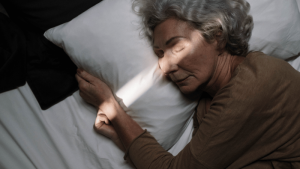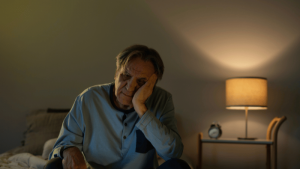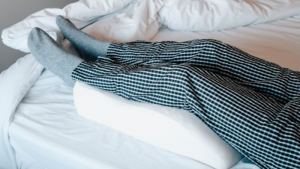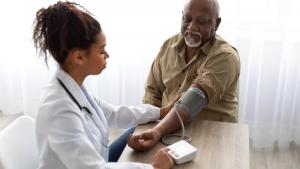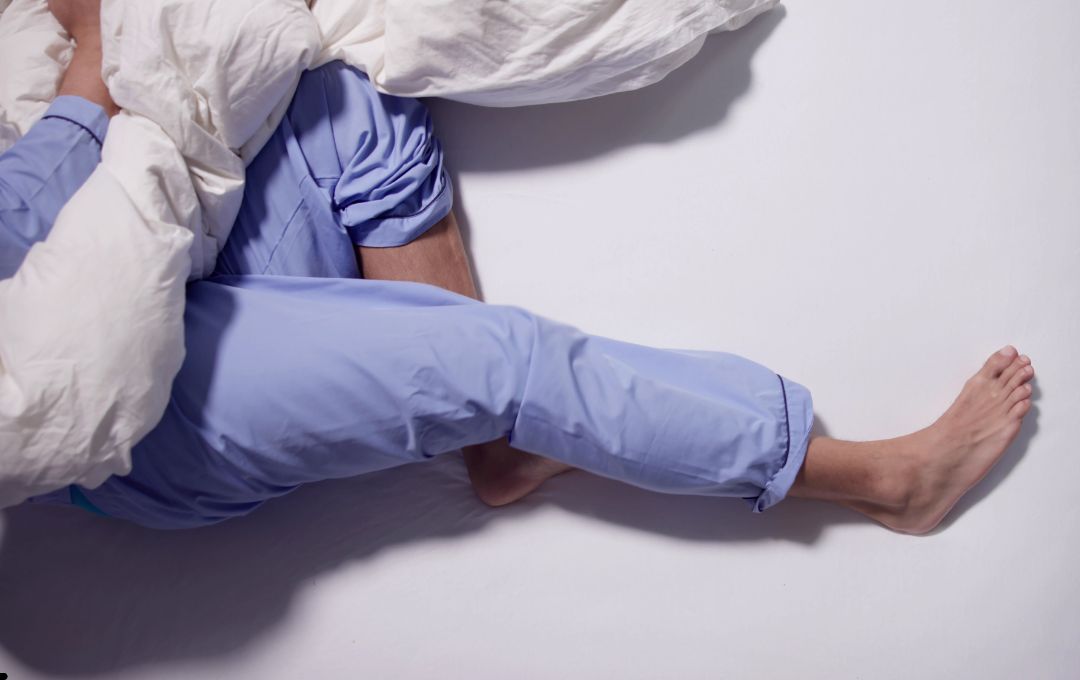
A good night’s sleep plays a key role in overall well-being. Poor blood circulation during the night can impact sleep, especially if you experience swelling, restless legs, leg pain, and varicose veins. These symptoms stem from chronic venous insufficiency (CVI), when the veins struggle to work properly. Over time, these symptoms can worsen and lead to complications, such as blood clots and non-healing wounds. Treating circulation problems early can help reduce symptoms, improve sleep quality, and reduce the risk of complications.
Recognizing Symptoms of Poor Circulation in Legs at Night
Poor circulation at night can cause recognizable symptoms, such as:
- Tingling
- Numbness
- Swelling
- Cold feet
- Lack of blood flow to your legs at night
These symptoms may indicate a condition like vein disease. A vein health screening is the best way to know if you have vein disease and discuss treatment options with a vein specialist.
What Causes Poor Blood Circulation While Sleeping?
Poor blood circulation while sleeping can be linked to multiple underlying conditions, with one of the most common issues being chronic venous insufficiency (CVI).
Chronic Venous Insufficiency (CVI)
Chronic venous insufficiency is another name for vein disease, occurs when the vein valves weaken, making it difficult for blood to flow back to the heart. Blood pools in the lower extremities, leading to swelling, heaviness, and discomfort—especially at night. CVI is often more noticeable during sleep because lying down can alter blood flow.
Peripheral Artery Disease (PAD) and Nighttime Circulation Issues
Peripheral artery disease is a vascular condition caused by plaque buildup in the arteries, which restricts blood flow to the legs. In later stages of PAD, leg pain can continue even while resting, contributing to sleep disturbances. Those with diabetes, high blood pressure, or smoking history should seek a vascular screening to assess circulation health.
Other Factors That Can Affect Circulation While Sleeping
Poor circulation while sleeping can also result from:
- Varicose veins: Swollen and twisted veins that impair circulation in the legs.
- Prolonged inactivity: Sitting or lying down for extended periods can reduce blood flow and impact circulation.
- Dehydration: Lack of proper hydration can thicken the blood affecting circulation.
- Obesity: Veins have to work harder to keep blood moving, which can lead to varicose veins, cramping, and restlessness at night.
Ways to Improve Circulation in Legs While Sleeping
There are several ways to improve leg circulation during sleep. This includes changing sleep positions, increasing fluid intake during the day, and adding stretching to a nighttime routine. However, consulting a vein specialist is the most effective way to address circulation issues and achieve long-term symptom relief.
Meet with a Vein Specialist
A vein specialist can diagnose the underlying cause of poor circulation and develop a personalized treatment plan. The experts at USA Vein Clinics specialize in treating circulation issues and vein-related conditions. Schedule an appointment today to take proactive steps toward better vein health.
Adopt the Best Sleeping Position for Circulation
Lying on your back with slightly elevated legs or sleeping on your side with a pillow wedged in between your legs can promote healthy blood flow. Avoid sleeping on your stomach, as this position can compress blood vessels and restrict circulation.
Stretch and Move Before Bedtime
Stretching and simple exercises can improve blood flow. This is because the calf muscles are responsible for moving most blood from the legs to the heart. Consider adding yoga, ankle circles, or calf raises into your nightly routine.
Consider Compression Stockings During the Day for Better Circulation
Compression stockings gently apply pressure to the legs, helping to prevent blood from pooling and encouraging circulation. However, compression therapy should only be used under the guidance of a vein specialist, who can recommend the appropriate level of compression and duration of use. It’s also not advised to wear compression stockings while sleeping because it may not help with circulation while lying down.
Stay Hydrated Throughout the Day
Drinking water supports circulation by preventing blood from thickening, which can impede blood flow. Drinking enough water throughout the day helps maintain smooth, healthy blood circulation.
Why Improving Circulation During Sleep Matters
Good circulation is essential for quality sleep and overall vein health. Addressing poor circulation while sleeping can help reduce swelling, leg pain, and discomfort while preventing complications like chronic venous insufficiency, varicose veins, and blood clots.
Untreated circulation issues can worsen over time, increasing symptoms and raising the risk of serious complications. Call 888.768.3467 today to make an appointment with a vein doctor and discuss any potential circulation health concerns.
When to See a Vein Specialist for Poor Circulation
It’s important to seek treatment from a vein specialist if you experience symptoms of poor circulation, such as:
- Nighttime cramping, swelling, and numbness
- Varicose veins
- Spider veins
Early intervention is the best way to resolve symptoms, improve circulation, and prevent complications. A consultation at USA Vein Clinics is the first step toward better vein health. Our nationwide clinics accept most insurance plans and offer self-payment options. You can check your insurance coverage after scheduling an online appointment or call 888.768.3467 to speak to a dedicated team member.
FAQs
Can poor circulation at night cause restless legs?
There is a link between poor circulation and restless legs. However, there are multiple causes of restless legs. If you are experiencing other symptoms, such as leg swelling, cramping, or heaviness, you may need to see a vein specialist.
How does chronic venous insufficiency affect circulation during sleep?
Chronic venous insufficiency results from damaged veins, making it difficult for blood to flow efficiently. This can lead to poor circulation during sleep.
Can poor circulation while sleeping cause long-term health issues?
Poor circulation while sleeping can cause long-term health issues without treatment. Untreated poor circulation can lead to varicose veins, chronic venous insufficiency, blood clots, and other vein health conditions.

